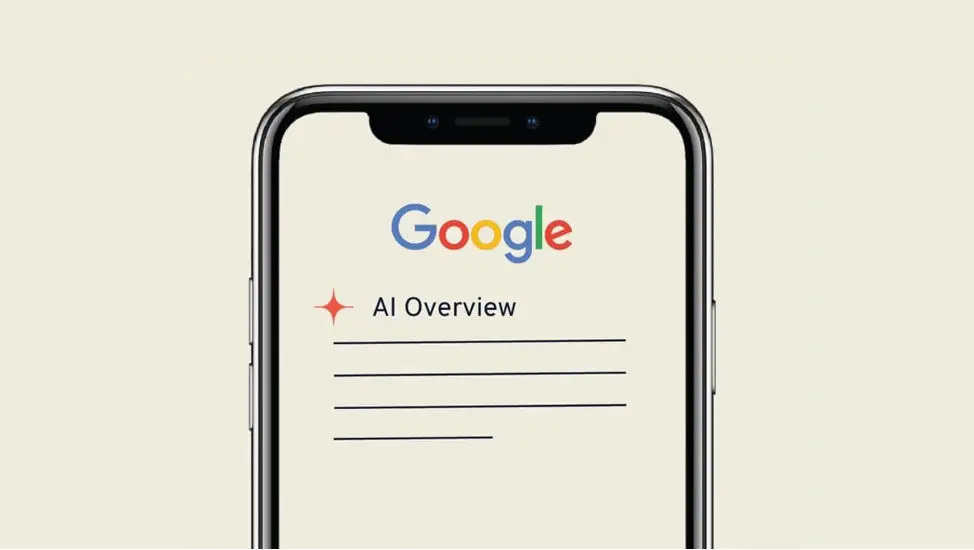How Google’s AIO Is Affecting SEO
![How Google’s AIO Is Affecting SEO [node:title]](/sites/default/files/styles/wide/public/smartphone-google-AIO.jpeg?itok=YqSGD1QX)
Google AI Overview (AIO) is at the forefront of the fast-changing SEO environment.
This search engine feature and technology is transforming conventional search engine optimization amid smarter search algorithms and user-centered strategies.
In this post, we’ll explore how Google’s AIO is disrupting traditional SEO and how you can adapt.
What Is Google AI Overview?
Google launched AI Overviews in the US in May 2024, a feature that offers users concise, AI-generated responses to their queries. These summaries, which appear at the top of search results, aim to make searching more accessible by providing users with information directly in search. Understanding context and user intent ensures more accurate results.
How Does Google AI Overview Work?
In order to understand user inquiries, Google AI Overview uses natural language processing and machine learning. Google's AI examines the context and purpose of a user's search query.
Instead of providing conventional search results, it then provides clear, relevant responses and topic summaries from various sources. This approach is intended to ensure users can get information more quickly and precisely.
Google's AIO keeps on learning from user interactions to get a deeper understanding of queries and provide even better snippets of information in search.
Impact of Google AIO on SEO
AI Overviews have led to a significant shift in SEO strategies. AI-driven answers are increasing zero-click searches, which is impacting websites that depend on traditional organic traffic.
According to a Zero-Clicks Study by SEMrush, 25.6% of desktop searches and 17.3% of mobile searches result in no clicks. Users are not clicking through to visit websites after they search on Google for more information because there is an instant AI answer at the top.
Along with an AIO block at the top of search, other search features like the People Also Ask (PAA) block appear right below the AIO, further ensuring zero-click searches increase.
To tackle this challenge of zero-click searches for website owners who depend on organic web traffic to their sites, adapting your SEO strategies is crucial. That starts with understanding the changes happening in search, specifically the impact of AIO on SEO, and adopting accordingly.
Other consequences of the introduction of AIO and impact of AIO on SEO include:
1. Changes in Ranking Factors
- AI-Driven Relevance: Google's algorithms are growing more proficient at recognizing search intent. This means content that is both relevant and consistent with user expectations gets a major advantage.
- Quick and Concise Answers: AIO prioritizes providing direct answers. This suggests that websites that can provide short, useful material in a user-friendly way could gain a competitive advantage.
2. Growing Numbers of Zero-Click Searches and Their Effects on SEO
Zero-click searches, where users find the information they need directly from the SERP without clicking on a website, are on the rise. This presents both challenges and opportunities for SEO:
- Challenge: Reduced organic traffic from traditional SERP clicks.
- Opportunity: Boosts brand visibility in search, without necessarily increasing web traffic. You can optimize content for featured snippets, answer boxes, and other rich snippets to increase visibility.
3. Deeper understanding of Search Intent and Behavior
- Personalized Search Results: AI enables Google to tailor search results to individual users based on their search history and preferences.
- Adapting Content Strategy: SEOs must adjust their content strategies to align with these personalized search results. This involves creating highly targeted content that addresses specific user needs and queries.
4. AI-Driven Content Summarization and Relevance
- AI-Generated Summaries: AI can automatically generate summaries of long-form content, making it easier for users to quickly understand the main points.
- Impact on Content Creation: This highlights the importance of creating high-quality, original content that provides valuable insights quickly without including fluff.
5. Quality of Content
High-quality content remains a cornerstone of effective SEO. Google gives priority to content that is relevant, valuable, and matches user demands.
The content that best suits user demands is given priority by Google's AI algorithms, which place a strong emphasis on accuracy, relevance, and clarity.
Websites must ensure their content is not only of high-quality, but also relevant to what users search.
Opportunities of Google AIO – Increased Visibility
Although the rise of AI-powered overviews and zero-click searches could limit traffic to websites, but it also opens new opportunities for visibility:
- Branding in AIO results: If a website's content is included in AI-generated overviews, it can increase brand visibility, even without a direct click to your business website.
- Visibility in Rich snippets and featured snippets: Optimizing for these formats can also lead to greater visibility in AI summaries, which can in turn increase brand awareness.
- User Data and Insights from AIO: Google's AI can offer insights on user behavior, enabling SEO experts to adjust their tactics in real time.
Tips to Optimize Content for Google AI Overview

Some effective practices you can use to optimize your content for AIO, Google’s AI-powered summaries in search, include:
1. Prioritize High-Quality, Relevant Content:
- In-depth coverage: Offer thorough, informative content that goes beyond the obvious solutions.
- Unique insights: Offer fresh perspectives, expert opinions, or original research.
- Clear and concise writing: Use simple language and clear sentence structure.
- Fact-checking: Ensure accuracy and credibility.
2. Optimize for User Intent:
- Keyword research: Identify relevant keywords and phrases that match user search intent.
- Semantic SEO: Consider related terms and synonyms to broaden your reach.
- Natural language: Write content that flows naturally and answers user questions directly.
3. Enhance On-Page SEO:
- Title tags and meta descriptions: Create attention-grabbing headlines and meta descriptions for your articles that accurately sum up the content.
- Header tags: To increase readability and organize your material by using H1, H2, and H3 tags.
- Image optimization: Use descriptive file names and alt text for images.
- Internal linking: Create a strong internal linking structure to guide users through your website. Integrating SEO services ensures technical and creative excellence for higher search visibility.
4. Leverage Structured Data:
- Schema markup: Use schema markup to help search engines understand the content and presenting it in rich snippets.
- FAQ schema: Provide straightforward answers to frequently asked questions whenever possible by using the FAQ format in your content.
- How-to schema: Use how-to schema to provide step-by-step instructions where applicable.
5. Optimize for Voice Search:
- Natural language: Write content in a conversational style.
- Long-tail keywords: Target long-tail keywords that people use in voice searches.
- Local SEO: Optimize for local search by including location-specific keywords.
6. Monitor and Adapt:
- Google Search Console: Track site performance and resolve technical issues promptly.
- AI Overview analysis: Measure how well your content performs in these summaries and refine it accordingly.
- Stay updated: To stay ahead of the competition, keep up with the most recent SEO trends.
Conclusion
Google AI Overview is upending traditional SEO strategies by providing AI-summarized answers that put user experience and relevancy first. It is essential to adjust to these changes in search if you want your SEO efforts to be effective in the current landscape.
By aligning your SEO strategies with AI-driven trends, particularly generative responses in search, businesses can unlock new opportunities and enhance visibility.
Moreover, continuously assessing and improving your SEO strategy in light of all the changes happening will ensure long-term success in today’s AI-driven search environment.
Featured photo by Alyssa Stone/Northeastern University.





















